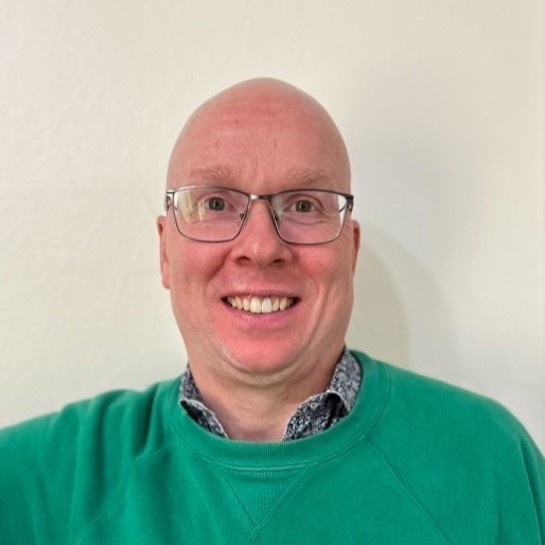Spotlight on the Boeing Math Group
As a leading global aerospace corporation, the Boeing Company develops, manufactures, and services commercial airplanes, defense products, and space systems for customers in more than 150 countries. The company is a top U.S. exporter and leverages the talents of a global supplier base to advance economic opportunity, sustainability, and community impact. Boeing’s diverse team is committed to innovating for the future, leading with sustainability, and cultivating a culture based on the organization’s core values of safety, quality, and integrity.
The vast breadth and advanced nature of the engineering work at Boeing yields exceptionally difficult mathematics problems. The Boeing Applied Math Group (also known as the Math Group) provides mathematical consulting and research services to all of Boeing and has further involvement in externally funded activities. With experts in mathematics, operations research, statistics, physics, computer science, and related fields, the Math Group comprises the most concentrated collection of mathematicians at Boeing.
Sample Ongoing Projects in Applied Math
Mathematics touches all of Boeing’s products throughout their entire life cycles—from initial product design to manufacturing and ultimately to service—and helps ensure safety and sustainability. The following are just a few examples of areas in which mathematics arises:
- Aircraft design: Simulation-based optimization algorithms and differential geometry support the design of Boeing products; optimization algorithms generate models of aircraft performance; the optimization, design, and analysis of passenger surveys guides future product designs; and statistical methods characterize the success of new materials.
- Manufacturing/production: Differential geometry models the interplay between part geometry and manufacturing processes; statistical studies determine manufacturing requirements, qualify production processes, and verify product conformance; and the optimization and design of experiments improves both manufacturing and production procedures.
- Supply chain: Optimization algorithms and discrete event simulations determine optimal inventory levels of airplane parts, raw materials, and supplier contracts.
- Communication systems: Optimization algorithms design and manage communication networks.
- Aircraft maintenance: Reliability modeling determines optimized aircraft maintenance intervals.
- Aerospace certification and safety: Statistical extreme value models help satisfy certification criteria for rare events; statistical and system dynamic hybrid models develop safety metrics on organizational culture, maintenance adherence, and engineering compliance.
- Quantum computing: Quantum computers offer potential computational improvements in multiple applications, including corrosion chemistry, materials degradation, optimization, and physical simulation.
- Sensor and data fusion: Statistical and mathematical models fuse multimodal sensor data and quantify uncertainty on numerous commercial and military platforms, both manned and autonomous.
In addition to the aforementioned applications and projects, Boeing mathematicians provide mathematical consulting and research services in many different math-based fields that are relevant to the company. Core focus areas include optimization, operations research, statistics, multidisciplinary design, geometric modeling, sensor data fusion, computational mathematics, quantum computing, and high-performance computing.
Skills for Successful Boeing Mathematicians
All members of the Boeing Math Group share a variety of foundational skills, such as mathematical problem formulation, algorithm development, and the ability to apply academia-based technology to Boeing’s large-scale, real-world problems. To create impact, generate solutions, and effectively convey information to customers, employees must combine this mathematical knowledge with programming expertise and good communication skills — both written and verbal. Effective communication with non-mathematicians is always essential but becomes increasingly so as individuals advance in their careers.
Successful Boeing mathematicians are curious and want to understand the science and engineering behind the problem to which they are applying mathematics. They are excited about the problem’s context, and eager to collaborate with engineers and scientists who are experts in their fields.
The Math Group is the centralized math organization of Boeing, and its members are expected to lead the company in all aspects of applied mathematics. As such, technical leadership in specific specialties is critical, as is a vision for the future impacts of those specialties. Throughout a career in the Math Group, this leadership grows to include external impacts as well.
One of the key differences between an academic versus an industrial environment—especially for young mathematicians who have just finished their college degrees—is the expectation to ask for help, rather than try to figure out problems alone; one's coworkers will likely be able to provide the necessary guidance when needed. Another distinction between academia and industry is that it is often sufficient to find a “good enough” solution in industry, instead of an optimal or provable solution.
Finally, sharing knowledge through teaching, mentoring, and other outreach programs is important in an industrial setting, and the significance of doing so only grows as mathematicians advance in their careers.
The Importance of SIAM Membership
SIAM involvement is valuable for employees in the Boeing Math Group for a number of reasons. Attending conferences and reading SIAM publications allows members to remain abreast of technological advances in a wide range of mathematical fields, then transition those technologies into solutions that drive impact at Boeing. Networking with other SIAM members during conferences, webinars, and other events is another way to learn about the latest research trends. Additionally, involvement in SIAM committees facilitates further networking and offers opportunities to influence decisions based on industrial needs. All of these engagements—along with participation in SIAM Career Fairs and the SIAM Job Board—lead to enhanced recruitment and the ability to shape research agendas outside of Boeing.
Members of the Boeing Math Group attend a variety of SIAM conferences that are sponsored by SIAM Activity Groups, including the SIAM Annual Meeting, SIAM Conference on Computational Geometric Design, SIAM Conference on Computational Science and Engineering, SIAM Conference on Mathematics of Data Science, and SIAM Conference on Optimization. We hope to see you there!
About the Authors
Sharon Arroyo
Senior Technical Fellow, The Boeing Company
Sharon Arroyo is a Senior Technical Fellow at The Boeing Company.

Joerg Gablonsky
Technical Fellow, The Boeing Company
Joerg Gablonsky is a Technical Fellow at The Boeing Company.

Stay Up-to-Date with Email Alerts
Sign up for our monthly newsletter and emails about other topics of your choosing.



